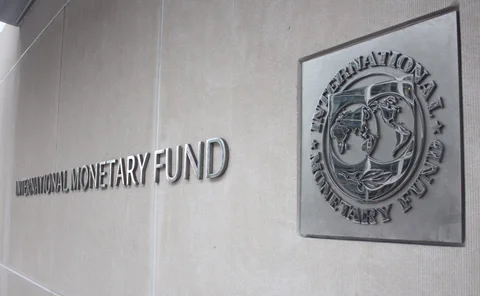Advanced economies
Riksbank study explores new stress test models for banks
A new proposal recommends developing models that can foresee multiple challenges and solutions
Paper challenges Rey’s ideas on global financial cycle
Cerutti, Claessens and Rose contest idea that capital flows are mainly the result of common shocks or developments in the US
IMF paper explores relation between greenhouse gas emissions and GDP growth
Research studies how advanced economies are transitioning to low-emissions economic models
San Francisco Fed research explores evolution of job-matching efficiency
As people out of the labour force are included, the volatility of the job-to-job transition rate falls, economists find
Kansas City Fed explores sources of wage dispersion in the US
Paper explores relative importance of “lifetime differences” and “match-specific” factors
Public spending shocks work better when households are confident- paper
Government spending stimulus reduces household confidence as it confirms pessimism regarding the economy, paper argues
QE has not increased eurozone inequality - ECB’s Constâncio
Low-income households benefit most from stimulus, ECB vice-president says
Wage growth may be stronger than headline figures suggest
San Francisco Fed researchers point to evidence that headline figures may overstate wage weakness; UK figures provide a positive surprise
Fed’s Fischer criticises efforts to unwind banking regulation in the US
The economist describes attempts to reduce capital standards as “extremely dangerous and extremely short-sighted”
Goodhart and Pradhan: demographics will reverse ‘multi-decade’ trends
Ageing population is likely to put upward pressure on real interest rates and inflation, and push down inequality, economists say
UK banking sector faces higher costs after Brexit, report warns
Banks intend to minimise initial impact of Brexit in operations, but may be forced to move more personnel over time to maintain proximity to clients
Swedish GDP growth beats forecast, adding to bank’s concerns
Inflation remains below the 2% target, despite lower unemployment, leaving the Riksbank reluctant to change course and raise rates before the summer of 2018
Evolution of monetary policy in advanced economies spells trouble for emerging markets – paper
Research explores the impact future monetary policy will have on emerging markets, concluding many will be forced to implement defensive measures
IMF research flags technology’s role in falling labour share of income
Automating routine tasks is cheaper for companies, which reduces jobs for middle-skilled workers and contributes to higher inequality in advanced economies, paper finds
BIS rewrites statutes to boost board diversity
Changes reduce the influence of the BIS’s European directors and could pave way for better representation of emerging markets
BIS urges policymakers to exploit ‘window of opportunity’
Financial cycles are getting close to turning in many economies and central banks and governments must make sure they are prepared, the BIS warns in its 2017 annual report
BoE’s Haldane examines changing nature of work
Rise of “gig economy” and self-employment may have weakened wage-setting power among workers, the BoE chief economist says; he indicates a willingness to vote for a hike later this year
BIS comes to the defence of globalisation
Increasing trade and financial integration have had a “profoundly positive” impact on people’s lives, but do bring drawbacks too; the correct response is not a wholesale rollback, says Jaime Caruana
Central banks build expertise in move to riskier reserve tranches
Growing popularity of reserves tranching is stretching central banks’ capabilities, a new report finds, but they are turning to asset managers and other central banks for help
Balance sheet weakness and falling investment to blame for productivity slowdown – paper
IMF paper rejects structural hypothesis for slowdown in productivity growth following crisis; firms with balance sheet issues and those hit harder by credit tightening cut back on investment
Financial integration enables EMs to improve trade integration – paper
BoE paper sheds light on relationship between foreign direct investment and international trade, highlighting the “substantial” economic effects for emerging markets
Eurozone instability tops reserve manager fears – survey
Threat of instability or weakness in the eurozone and fear of major asset price correction are greatest concerns for reserve managers in 2017, Central Banking survey shows
Build-up of public debt causes longer recessions for EMs – paper
“Less supportive” fiscal policy makes emerging markets more prone to problems associated with accumulation of public debt; authors highlight the importance of fiscal buffers
Positive shock could still trip up advanced economies – Blanchard
Former IMF chief economist warns high debt levels could interact with positive shocks to cause problems; backs Rogoff’s plan for a cashless society























